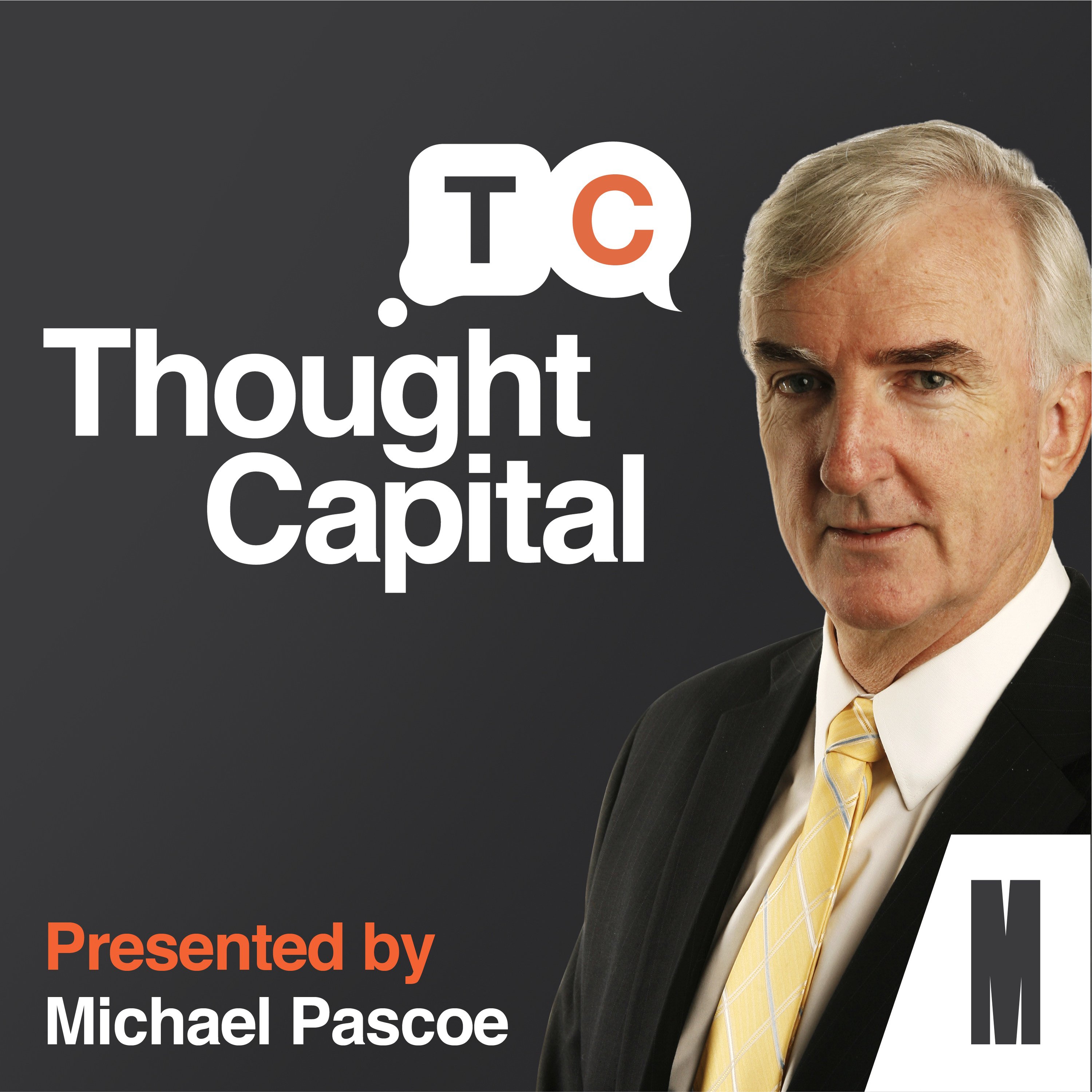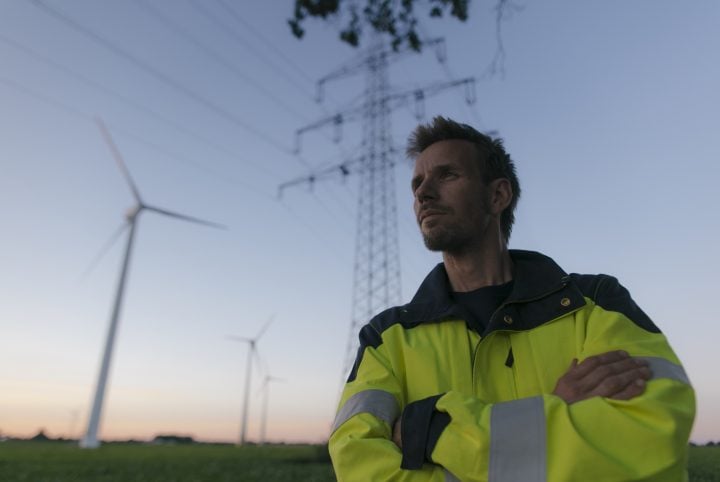Michael Pascoe: Hello. I’m Michael Pascoe. Welcome to Thought Capital, the podcast that delves into the wealth of ideas created by the experts at Monash Business School in Northern Australia.
Michael Pascoe: Law and order, getting tough on crime, harsher sentencing. All are familiar catch cries in Australian politics. Not only catch cries it seems but reality. Australia is getting tougher on crime. Judging by the prison population, which has risen rapidly over the last ten years. It’s booming.
Michael Pascoe: America went down this road of cleaning up crime many years ago. Some are starting to question the cost to society.
Yves Zenou: What matters for crime is the structure of the community. If you start to punish and punish and punish, what you do, you put people in prison. But you put also fathers in prison. Growing up without a father, means that you are more likely to be influenced by your peers, which are themselves criminal. Then you end up with this downward spiral where you end up with more crimes (rather) than less crime.
Michael Pascoe: In this episode we will find out if there is a more efficient way of targeting criminals and destroying criminal networks. How less punishment can indeed lead to less crime both in America and right here. We’re doing it not with a criminologist or a sociologist but with an economist. Yves Zenou, professor of economics, welcome to Thought Capital.
Michael Pascoe: How does an economist think about crime differently than a criminologist or a sociologist?
Yves Zenou: Yeah. Let me put everything in perspective, Gary Becker in 1968 from the University of Chicago was a first economist saying that crime is within the purview of economics.
Michael Pascoe: Everything’s within the purview of economics.
Yves Zenou: Yeah. Exactly and that’s the Chicago School. Everything, family, crime anything that you think of sociology is economics. Why is it economics is because you can look at social consequences of a quick outcome. For example, people committing crime are not working. Working is labor that’s economics. Committing crime have an impact on the economy. They’re stealing from people, so everything is within economics, so that’s why we need to study that.
Yves Zenou: The main difference between I think sociologist, criminologist and economists is that we have a different methodology. We write mathematical models which we test empirically. Well, I don’t think sociologist and criminologists do that. We have this particular model we can test empirically that’s the main difference.
Michael Pascoe: Is it just about an algorithm or is it also a different way of thinking that economists tend to approach things by?
Yves Zenou: Yeah. It’s a different way of thinking. Basically the economist approach is to say people are rational and when they commit crimes they do a cost benefit analysis. They say, “I’m rational, I’m going to commit crime if the cost is low compared to the benefit.” However, that would be my criticism here is saying that this is a limiting approach. Because if you think of Becker, he said, because of cost benefit if you need to punish, punish, punish as harsh as you can, you’re going to reduce crime. That is theory. It’s called the broken windows hypothesis. Don’t tolerate anything. Punish like crazy and you end up with low crime.
Michael Pascoe: You as an economist have looked a bit differently.
Yves Zenou: Yeah. I try to look at differently and I work about the structure of families and this is coming actually from sociology, is called the ‘social disorganization’ theory. Basically it is saying that what matters for crime is also the structure of the community. So if you have a strong community who looks after each other, who have values, then crime will not be important. What I show in my research basically is that if you start to punish and punish and punish, what you do, you put people in prison. But you put a lot of fathers in prison. Putting fathers in prison meaning that the kids grown up without father. Growing up without a father meaning that you’re more likely to be influenced by your peers which are themselves criminal. And then you end up with these downward spiral where you end up with more crimes than less crime.
Yves Zenou: And family matters, so if you look at US which is a good example, why is because US has the highest per capita incarceration rates, highest crime rate in the world, so it’s an important example. You see a lot of inner city kids, mostly African-Americans don’t have a father. I think 80% of them have no father. So, no father, no role model meaning that the only source of peers are coming from the street from the people you hang out. The community will be the network of criminal, the gang, the people you hang out every day with. That’s obviously not very good because you can end up with more crime than less crime by punishing more.
Michael Pascoe: And at the other extreme of low incarceration rates is Sweden. Is that much lighter sentencing model holding together better?
Yves Zenou: Sweden is very, very light on crime. So basically they say we cannot punish, we have to help them coming back to society. It doesn’t work perfectly, in a country like US you cannot do that. I mean, people have guns, crime is very high, there’s a lot of poverty. And on the other hand, it’s a whole system you have to think of. Sweden is like Australia, you have a very high safety net, so if you’re an employee, you get a benefit, they help the poor. So of course crime is not a question of race, it’s not a question of being evil, it is a question of opportunities.
Yves Zenou: If you’re born in an inner city with no father, no income, obviously is going to commit a lot of crime because it’s the only opportunity you have. But if you are in Australia or in Sweden where you have much more opportunity to work and income even if you’re unemployed, then we’ll you see commit less crime. Again it’s a choice of society. You cannot say a black kid without the father in a poor family has the same chance as the white kid in a good area in the US.
Michael Pascoe: A Puritan ethic, fundamentalist ethic coming through the society.
Yves Zenou: Yeah.
Michael Pascoe: Someone said America got the Puritans, Australia got the convicts and Australia probably got the better of the deal.
Yves Zenou: That’s good fun. Yeah.
Michael Pascoe: Obviously for an economist, for a researcher, America has so much data on crime and punishment, it must be a rich field to find the examples you need to build a case. Are there particular areas that you’ve specialized in there?
Yves Zenou: Yeah. I work a lot about criminal networks. Criminal networks is you want to understand how people who are linked to each other in some way, in some kind of way commits crime. And what you see is very interesting because Becker was saying opportunity matters. Cost benefit. But then there’s a paper in the 90s showing that … they were looking at different district of New York. If Becker is right then it has to be that if I look at different economic outcomes, let’s say the poverty rate, unemployment and so forth, we’ll see the same crime level. And then he discovers that in some areas which have exactly the same unemployment rate, poverty rate and other, you have hundred – not twice, not three times – a hundred times more crime than the other area. And this issue in this paper by Ed Lazar from Harvard, this shows that basically the key was the connection between criminals. In some area there’s a lot of gangs, a lot of interaction, in the other one you don’t have that. That creates what we call social multiplier. The fact that by myself I will commit some crime but the fact that I am with other people I’m going to augment my number of crime. Just because of social influence.
Michael Pascoe: So if crime is normal, you commit crime?
Yves Zenou: Exactly.
Michael Pascoe: If you’re part of [crosstalk 00:07:50]. And it becomes a vicious cycle.
Yves Zenou: Exactly. And then you start because, even you know there’s a lot of papers showing that if you go to prison, you learn about crime and become even more criminal. You have no money, you go to prison because you commit some crime, petty crime; then you come out, then you have no job so your friend says, let’s go commit crime and that’s no way you going to stop that. [crosstalk 00:08:11]. Yeah.
Michael Pascoe: Well, how do you break it? How do you break that cycle? How do you attack a network?
Yves Zenou: Yeah. Basically the idea is to say, “Okay, there should be some trade off between punishing, as I say you need to punish, but also helping broken family to build again?” But the network give you the structure and I have developed an algorithm where I try to identify what I call the key player. Basically is a key player as a criminal in the network, for which when you remove them from networks, you reduce the most total crime of the network. And I’ve worked with actually very good data with the Swedish Police, when I was in Sweden. So basically the question is that, “Do we have data about networks and criminal networks?” The way I defined was a different way. Whenever two persons have committed crime together, I call it to co-offender crime, then I say there is a link between them. Okay? Then I build my networks and I say, “Okay, let’s remove this guy, so you can do some simulation, and then see how much crime will be reduced, as opposed to what the police is doing.” This is how you target people where we look basically at criminal records, immigrant stuff like that and I show that you can reduce much more crime if you target actually the key player or the key person in network. The people who are really important in the network.
Michael Pascoe: These kingpins take on mythological proportions. We think of the wealth of Pablo Escobar and his Colombian drug cartel or The Godfather, Don Corleone. His film character was based on the real life mobster Frank Castillo, known as the Prime Minister of the mafia. The importance of these figures in the networks is incontestable. But what about completely unknown main characters and some of the thousands of criminal gangs on the streets of America. How do you identify the kingpin? The key player you need to target to get that criminal organisation broken.
Yves Zenou: I read couple of paper about Chicago and LA but Chicago especially. They have reduced a lot of crimes there. There’s a lot of crime here. Because they’ve reduced a lot and what they did, they didn’t do a scientific approach but they try to identify the kingpins who are the key player in these networks and then target them. Of course you cannot do like in the movie Minority Report, you cannot arrest people before they commit crime but what you do, you put a lot of resources on some of them. You listen to them and you see how they interact and try to stop them.
Michael Pascoe: But if you take out a kingpin, looking at the Mafia, you take out one Godfather, doesn’t that just mean several other spring up?
Yves Zenou: Sure. That’s a good point. But the question is that, okay, if the guy is at that the top is because there’s something about him.
Michael Pascoe: He’s good at crime. He’s got talent.
Yves Zenou: Yeah. He has talent. Basically, this guy you get it out of the network you put in prison there’s a second guy but the second guy is not going to be as talented. But they remove five, six, seven people like they did in the Mafia in Italy and you really have a huge effect on that. And that’s what I think people are doing for terrorism.
Michael Pascoe: California has imposed the three strikes law since the 1990’s in an attempt to lower crime rates. The term comes from baseball. Three strikes and you’re out. It implies that if you committed two earlier crimes the third time you’re caught you are basically imprisoned for twenty five years to life. The system has resulted in overpopulated prisons and California is currently spending more on the penal system than on education. Crime rates are lower but people are beginning to question the efficiency of the system.
Yves Zenou: Basically is a fact that when you have bad school, you’re going to create even more criminal. There’s always more crime than the demand if there’s no family, if there’s no opportunity to work, if there is bad peers, there’s no way people are not going to make it run. Putting more and more people in prison like they do now is not a solution.
Michael Pascoe: Other people would say those in favour of ever greater crime and punishment, the shock jocks who are always campaigning on it but, look at New York. New York had a campaign of zero tolerance, mayor Giuliani.
Yves Zenou: Yeah. But apparently, what research show, it shows that it’s not clear it’s crime reduction in New York is due to the tough policy or something else. For example New York was very high in the 80’s because there was a crack epidemic. A lot of crack. Now the economic is booming. So are you sure is about punishing more? It’s very difficult to know the effect, you know. There’s a lot of booming, the economy is going well in the US, there’s no crisis, it’s not clear which one is true.
Michael Pascoe: You know, you’ve done research on the Scandinavian model?
Yves Zenou: Yeah.
Michael Pascoe: At one extreme. The Americans at the other.
Yves Zenou: Yeah.
Michael Pascoe: Which way is Australia heading?
Yves Zenou: In Australia it’s way below actually the US. Crime is very low, crime rate compared to other country. There is very good system of safety net. But of course I saw this issue happen in Melbourne this all this issue about the Sudanese gangs are based more crime. I look at statistics like 1% of the crime offender are from Sudan which is still an over representation of them. Majority of crime is done by Australians. Of course there’s a lot of crime by drugs in New South Wales, as you know, the Middle Eastern gang. But we are far from these statistics.
Yves Zenou: But of course we have to be careful. And one of the question now it’s I think for Australia it’s very important, related to the integration policy. So if you accept immigrants coming to a new country with no relation, with no cultural connection to this country, with no opportunity for work you can have problem with them.
Michael Pascoe: Those French economists, I find them very dangerous on the streets. You’ve got to watch them. So while, yes, crime rates are much lower than the US, our attitude to crime seems to be going down the American road. We do have mandatory sentencing. In the Northern Territory, most obviously you can get jailed for stealing a bicycle there if you had a strike before. We have one-punch laws in New South Wales, mandatory severe sentences. And we have tabloid journalism, shock jocks for ever demanding tougher sentences. Is that a slippery slope to an American system?
Yves Zenou: I think so. The only way to solve it is not by putting them in prison. Of course you have to identify the kingpin put him in prison. These kids are fleeing war from Sudan coming to this country, it’s of course a lot of traumatised experience and so forth. We need to help them come in to the community. Of course you have to be tough, you have to punish, but you have to integrate at the same time. You have to help them coming into society, give them work, fight discrimination, maybe do quotas, affirmative action. I mean there’s things you have to do. I don’t think you’d have to punish but you have to do both at the same time.
Michael Pascoe: So it’s a matter of building up positive networks otherwise you create negative networks.
Yves Zenou: Exactly.
Michael Pascoe: You also get financial incentives to punish. There are entire industries and companies devoted to building prisons, running prisons in the private sector. Is there a danger that they will exert influence on policy?
Yves Zenou: That’s for sure. I don’t know about Australia but for sure in the US that plays some role. But at the end of the day obviously the politician have to decide. Of course they have influence by the lobbying from this group. Again it’s a society what you want to build. I’m so happy that Australia decide that you cannot carry guns and you see the effect, no more shooting for so many years. So this is a right way to go.
Michael Pascoe: But you’ve been applying network theory to crime, it has broader implications than that?
Yves Zenou: Yeah. Much broader implications. Actually I’ve been working on many topics but one of very simple topic is financial networks. So basically, we remember when there was a financial crises in the US, and the question was, “Which firm you want to bail out.” Actually may I keep your ideas I’ve applied also to financial the network. The question is that, “Which bank you want to bail out in order to avoid financial contagion or systemic risk?” Because you have inter bank loans every day. So the bank which are keys give loans to all these small banks. If that disappear a lot of banks are going to vanish.
Michael Pascoe: Governments are very wary of trying to pick winners because if a politician that picks a winner and it doesn’t win … They don’t like being seen to lose.
Yves Zenou: Yeah.
Michael Pascoe: Is that something that you can try to outsource to an academic objective system?
Yves Zenou: Yeah. Because what I do, I can explain that what I do is totally objective, there is no political … any fairness is only efficiency then I go with them and explain the way it’s calculated, and you exactly can identify which are the key banks or the key sectors or the key firms you want to put the money on.
Michael Pascoe: So where does your research take you next?
Yves Zenou: I’m following this paper about … I’m enjoying working on the key player ideas and try to adapt to apply to other fields. I’m working on, but, Africa right now. And I want to look again … we look at different districts in the whole of Africa. We want to see which are the districts which are key in order to generate more growth. Local growth. And we identified the key sectors there and try to see which sector you want. Again we look at not only as a growth but at the connection between those sectors. If there’s a road between different sector in Africa, which area you want to put roads or transportation and so forth. And hopefully I will work on Australia in the future.
Michael Pascoe: Just going back to the crime and punishment side you do have to … there is still punishment. Have you done work on what sort of punishment is most effective?
Yves Zenou: Yeah. I believe that depend on what type of crime. But if a crime is not too serious, what is not murder or rape or whatever, I think community service will be good. The idea of you want to bring back to the communities, where you don’t want them to be for ever and then cannot go back home. So I just want to give an example, in the US they have a couple of policy where they try to improve poor people. There’s one that’s called Moving to Opportunity program. And what does it do? They just say everybody will live below the line of poverty in some area, we’re going to help you move out to a better neighbourhood. So they give a housing voucher and they hope that they are going to get a voucher. And I say, this is not a good policy. Why? Because it’s going to help the best people who want to move and you have a brain drain within the country. Because who are left behind has got to be the poorest and the more criminal in the country.
Yves Zenou: So what I say, whenever you want to do a policy try to kill two birds with one stone. So not only create jobs, but create role models. So for example there’s a policy in the U.S. called Enterprise Zone program, where you subsidise any firm who try to locate in depressed areas that they will not locate. So you give money for them or tax free whatever. In that case you do two things not only you create jobs locally but you keep people in the community. You have to punish, punish them but think of not letting the best people from the community leaving the communities. But of course if you are smart and you live in this community in the U.S. for example you want to just get out of them. And the promise that the people left behind are worse and worse. So in the U.S. they say, “We have created middle class African American.” Which is true, but the inner city is worse than before.
Michael Pascoe: Well this makes sense to an economist, it makes sense to someone who’s rational. Public opinion, the power of the shock jocks of course tends to push it the other way. How do you turn that perception around?
Yves Zenou: It’s complicated because public opinion likes black and white. They are like simple story, not like complicated story. So they’re like thinking okay, we race is not an issue we know it’s only a matter of opportunity of giving the chance to make it. It’s difficult because then you have to talk about general equilibrium effect. If you put people in prison meaning you have less money for schools, for education. Less money for education meaning that people are more likely to be criminal. But then you have to think bit more. I think in the major … in the T.V. and everything you want very simple message, black and white and that’s easy.
Michael Pascoe: I don’t feel safe walking around Melbourne when there are a lot of white people. I know they’re committing most of the crime. Revenge is still a big thing in a Puritan-based society. The idea of an eye for an eye, revenge … yet that is what you’re talking about, it’s being self-defeating.
Yves Zenou: Yeah. I understand revenge when someone is killed your family maybe, or the most of the crime is not murder, most of crime is surviving. Taking money because they have no work and have no way of making it and also there is peer pressure. That’s key so I don’t think revenge of what, taking money from someone else, it’s not revenge of killing someone. But I mean we want a society where you’re more tolerant. I mean you want safety when in Australia when you can walk in the street, people try to help each other.
Michael Pascoe: We have a situation now of the government tightening up on refugees on recent migrants providing fuel services. Actually reducing the social safety net for them.
Yves Zenou: Yeah.
Michael Pascoe: That sounds like the wrong formula for what you’re saying.
Yves Zenou: You need to give them safety net you can have get into the work you help them learning English this is key because when they’re there and permanent residency you need to help them integrate it’s going to be there for a long time we’re European We are a bit luxury you know if I’m not happy here I can go back to France or to Sweden it’s a nice country there’s no problem but when you are from Syria or Iraq you don’t want to go back to the war there so you need to help them get into society.
Michael Pascoe: Try to look at the big picture is the tendency of society of tabloid journalism to look at the individual crimes rather than the big picture of what sort of society we want is that the debate we’re not having in this country?
Yves Zenou: Yeah. I totally agree. I mean, of course when you’re jealous you want to sell … again your objective is to sell newspaper. Nobody cares about the big picture, they care about, you know, sensational news. But as a politician you should care about the big picture. Do you want to be in the society where the rich get richer and the poor get poorer or do you want a society which is more egalitarian. You pay more tax the rich are not that rich and the poor are not that poor like in Sweden for better or here. But you can walk in the street, you can trust people, that’s a question of choice of society.
Yves Zenou: And you want to build communities you want people to to live together. I believe the second one is a better choice and we can do that. Especially in Australia there’s not that much crime, we don’t have this huge pocket of unemployment and segregation so we can still do it.
Michael Pascoe: I hope so too. Professor Yves Zenou thanks for talking to us.
Yves Zenou: Thank you.
Michael Pascoe: You’ve been listening to Thought Capital from Monash Business School. You can find out more at monash.edu/impact. Thought Capital is produced by Tina Zenou. Editing in post production by Nadia Hume, technical support by Gareth Popplestone. Executive producer is Helen Westerman.




